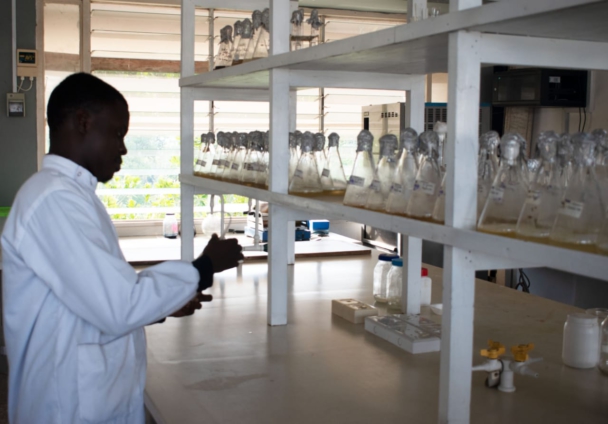The second phase of the Science Granting Council Initiative, a project aimed at enhancing Ghana and Africa’s capacity to undertake quality scientific research work has commenced.
The SGCI phase one did run from 2015 to 2020. The second phase started last year and is expected to run until 2023.
“Africa as a continent talks about learning from each other and collaborations across regions. That is being done through this project so that collaboration is not just a dream but is working as expected,” Nodumo Dhlamini of the Association of African Universities (AAU) explained to the media.
The SGCI works to help nations manage research, monitor outcomes of research initiatives, support knowledge exchange with the private sector, and strengthen partnerships between Science Granting Councils and other science system actors.
The first phase of the project run from 2015 to 2020, with the second phase running from 2021 to 2023. It is being implemented in Ghana under the auspices of the Ministry of Environment, Science, Technology and Innovation (MESTI).
The overall goal of the second phase of the SGCI is to fortify the capability of country Science Granting Councils in explicit areas of research management, knowledge and use of tools such as Research Quality Plus framework, research ethics, emerging scientific practices (especially open data, open access and citizen science), good financial grant practice (GFGP) benchmarking exercise, and development of online grant management systems.
The SGCI is currently being supported by the Swedish International Development Cooperation Agency (Sida), United Kingdom’s Department for International Development (DFID), Canada’s International Development Research Centre (IDRC) and South Africa’s National Research Foundation (NRF).
The Association of African Universities (AAU) and the African Academy of Sciences (AAS) are the consortium partners for the second phase of the SGCI. Both AAU and AAS are two continental higher education and research bodies with experience in research management.
Nodumo is confident in a matter of time, ordinary people will be able to connect happenings in their daily lives to scientific research because the benefits of science are abundant.
“Ordinary Ghanaians struggle to connect themselves with the research ecosystem, but there are problems like traffic jams, unemployment. Africans and Ghanaians relate to these, like Covid and shut down of countries. We are hoping that ordinary Ghanaians can help see the role of research in solving these problems and can benefit from translated information from complex research,” she said.
“Research quality framework has been developed. It is a framework that guides the ecosystem of research. Hoping that councils will be very well vested with the framework so we can go a higher level to impact the countries and impact Africa and impact the SDGs,” she explained.
Latest Stories
-
George Twum-Barimah-Adu pledges inclusive cabinet with Minority and Majority leaders
5 mins -
Labourer jailed 5 years for inflicting cutlass wounds on businessman
6 mins -
Parliament urged to fast-track passage of Road Traffic Amendment Bill
7 mins -
Mr Daniel Kofi Asante aka Electrician
7 mins -
Minerals Commission, Solidaridad unveils forum to tackle child labour in mining sector
12 mins -
Election 2024: Engagement with security services productive – NDC
14 mins -
‘Let’s work together to improve sanitation, promote health outcome’ – Sector Minister urges
15 mins -
Ellembelle MP cuts sod for six-unit classroom block at Nkroful Agric SHS
18 mins -
‘I’ll beat the hell out of you if you misbehave on December 7’ – Achiase Commanding Officer
21 mins -
AFPNC leads the charge on World Prematurity Day 2024
27 mins -
Court remands unemployed man over theft of ECG property
33 mins -
Election security rests solely with the police – Central Regional Police Command
35 mins -
NCCE engages political youth activists at Kumbungu on tolerance
35 mins -
‘In Mahama’s era students lacked chalk, but are now receiving tablets’ – Bawumia
45 mins -
Project commissioning not a ploy to attract votes – Oppong Nkrumah
47 mins

